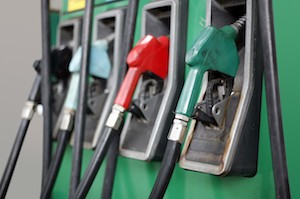 As a car owner, you probably fill up your tank weekly, on average. You’ve probably given some thought to which gas stations to visit, compared prices, and wondered, does auto gas quality really matter? Here is something to add to that line of thinking…
As a car owner, you probably fill up your tank weekly, on average. You’ve probably given some thought to which gas stations to visit, compared prices, and wondered, does auto gas quality really matter? Here is something to add to that line of thinking…
Cheaper Gas Has Fewer Additives
These days, gas is highly regulated and legally required to contain certain levels of octane, detergents, ethanol, and other additives. So, all gas is technically safe for your vehicle. However, auto manufacturers have argued that those regulations are not sufficient for modern vehicles and should therefore be upgraded. In fact, some “top tier” gas companies actually include additional cleaners and additives in their gas. These can help keep residue from building up in the combustion chamber and valves. In the long run, it can help vehicle performance and reduce maintenance costs.
Weighing Cost Against Vehicle Repair
If you’re like most price conscious consumers today, you search for the cheapest gas in your area. You probably avoid the top tier brands and opt to save money in the short term. However, how might this affect the long term cost of your vehicle. If using cheaper gas leads to poorer vehicle performance and added maintenance cost, is it truly worth it? Are you really saving money? Most owners of high end cars wouldn’t be caught putting no-name gas into their vehicle. They swear a noticeable difference in vehicle performance. Does the same apply to every vehicle?
Does Gas Quality Really Matter
There are many opinions when it comes to the topic of “Does gas quality really matter?”, so let’s look at the facts. First and foremost, there is no danger in using cheaper gas. We want to make that perfectly clear. However, name brand gas companies (such as Mobil, Shell, Exxon, BP, Chevron, etc.) do include more additives and cleaners in their gas. These can help prevent buildup, and logically, that should improve vehicle performance and reduce repair costs over time. To what extent does it exactly impact overall performance cost? Well, that’s where things aren’t quite clear. Furthermore, is this a more important decision when it comes to a newer car as opposed to an older one? Ultimately, the choice is yours!


